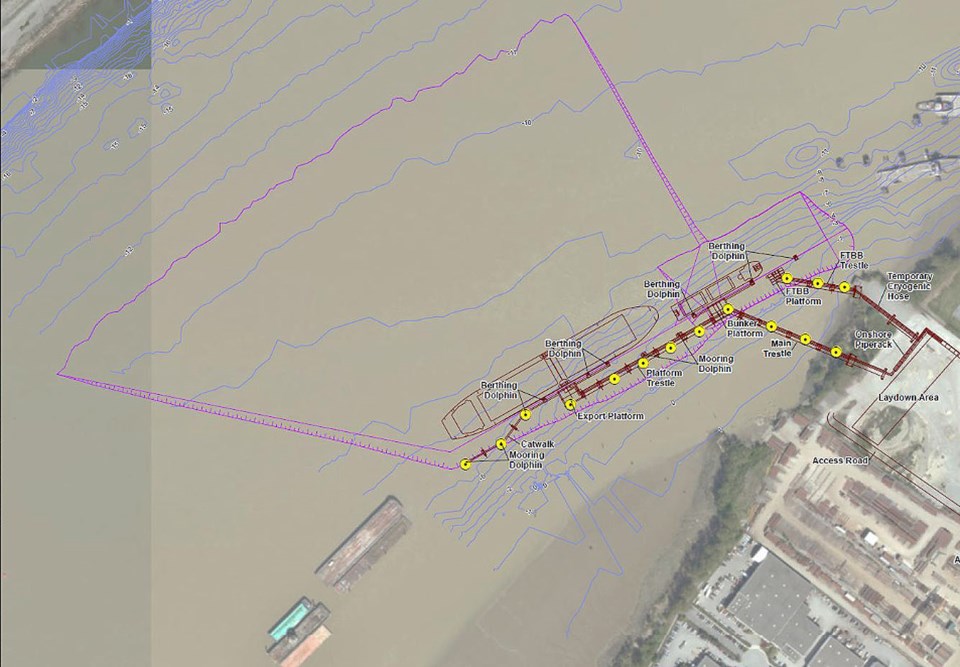The City of Delta is asking for further assessment on the application to build a new liquefied natural gas (LNG) facility adjacent to the FortisBC plant in Tilbury.
The Tilbury Jetty Limited Partnership is proposing to construct the Tilbury Marine Jetty Project on the Fraser River.
The project involves the berthing and transferring of LNG to marine barges and carriers for delivery to mostly offshore export markets, loading product from the FortisBC facility.
Until last year, the proposal was called the WesPac Tilbury Marine Jetty project, but it has since been renamed.
The Tilbury Jetty Limited Partnership, a partnership between affiliates of FortisBC and Seaspan, replaced WesPac Midstream-Vancouver LLC as the proponent.
The project, first proposed in 2015, is currently undergoing an environmental assessment and is under review by the B.C. Environmental Assessment Office (BC EAO) as well as under the Canadian Environmental Assessment Act by the Impact Assessment Agency of Canada.
The application review period was suspended this summer by the BC EAO to allow the proponent time to submit supplemental assessment information on potential project-related effects of an expanded area of scope. The BC EAO recently lifted that suspension, allowing for the reviews to continue.
Council, at its Sept. 20th meeting, agreed with staff recommendations for government to provide an acknowledgement of Delta’s previous request that regional environmental assessments for the Fraser River estuary and Salish Sea be completed, and for that information to be used to develop a long-term environmental management plan.
Delta also wants to be able to review and comment on draft plans related to the project that could impact Delta’s interests.
The city also wants a requirement within the table of conditions for the proponent to investigate the feasibility of providing shore power to LNG carriers and bunkering vessels.
Council also wants workshops with FortisBC and the BC EAO.
The BC EAO concluded that the project would not result in significant residual adverse effects.
If the project receives an environmental certificate, it would still require rezoning approval from the city.
Meanwhile, there’s a separate application to further expand the existing FortisBC LNG plant.
A detailed project description was filed last week for the Tilbury Phase 2 Expansion as part of the environmental review process, FortisBC recently announced.
The utility has been gathering input from Indigenous groups, stakeholders and the general public to produce the detailed project description, which outlines the project and its potential impacts.
It has been filed with the BC EAO and the Impact Assessment Agency of Canada, both working cooperatively for the initial phase of the project review, to complete the early engagement phase.
FortisBC says that since launching the project in February 2020, it has refined the proposed design.
The proposed storage capacity of the new tank has been reduced 12 per cent to 142,400 cubic metres, while the proposed liquefaction capacity has been reduced 28 per cent to 2.5 million tonnes per year.



